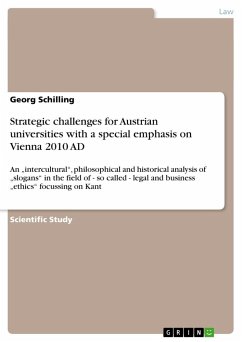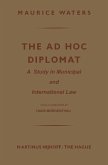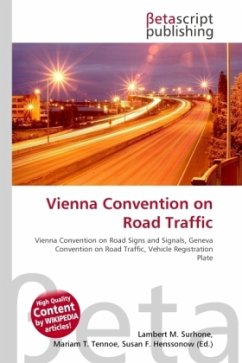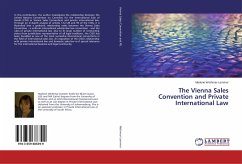Scientific Study from the year 2009 in the subject Law - Comparative Legal Systems, Comparative Law, Vienna University of Economics and Business (Institut für Rechtsphilosophie, Religions- und Kulturrecht), course: Against "white"-washing shadows of philosophers in ethics lectures/courses, language: English, abstract: At universities, students are often presented (almost) "semi-divine" personalities, be it KANT, be it HEGEL, be it HUME, be it other important, influencial thinkers, especially in the field of - so called - "ethics" , be it e.g. so called "management ethics", be it so called "legal ethics". Some of these students are simply one thing: fed up with the way of in fact almost "gloryfying" (!) these men. It remains the job of at least some people to at least partially critically (re-)think what and how things are presented to students. Vienna, a city of critically thinking men and women? Vienna, a city, in which e.g. Immanuel KANT is (also!) presented in a (more) critical manner, e.g. with respect to KANT's "views" e.g. on women, Afro-americans, Jews? Vienna, a city, in which also a so called "faculty of law" exists in which (some!) legal philosophers - nothwithstanding the fact, that many of them would in fact wish to change some ways and words of presenting e.g. KANT, HEGEL, or ROUSSEAU to students - simply, contrary to a sometimes "I-am-willing-to-change-something" "rhetorics"- do not change anything in the direction e.g. of also informing students at least about the existence of Prof Dr Anton Wilhelm AMO, a contemporary of e.g. Immanuel KANT, a man who had to suffer so many prejudices, who tought at universities, nothwithstanding racial, (partially) hatred-filled, boastful, texts, spoken and unspoken words. Why not mention e.g. him for instance in the Viennese "Einführungsskripten" (introductory scripts to law) , also e.g. the script of a corresponding member of the AUSTRIAN ACADEMY OF SCIENCES, Prof Dr Gerhard LUF, a man also educated and gifted in arts, of huge knowledge also in literature, a man also known for his opinion on the former "Auwald-Besetzung" in the KREISKY-era and its conflicts, a personality also known for his favour of football, and: the development of (universal?) human rights? Is it "bad" to write at least one word in e.g. a script, thus not directing into a positive thinking of e.g. KANT stood for? Why not? Are - in fact: rather simply/clearly presented answers always "good" answers? Is it probably "bad" for e.g. forthcoming lawyers, civil rights activists, journalists, public prosecutors, tax managers (etc) not to know at least one (clear!) word about uncritical texts of KANT, his "thoughts" on women, or of MONTESQUIEU's opinion in "L'esprit de la Loi" with respect to slavery [sic!]? Why not? Does this enhance democracy in Austria ?
Bitte wählen Sie Ihr Anliegen aus.
Rechnungen
Retourenschein anfordern
Bestellstatus
Storno








